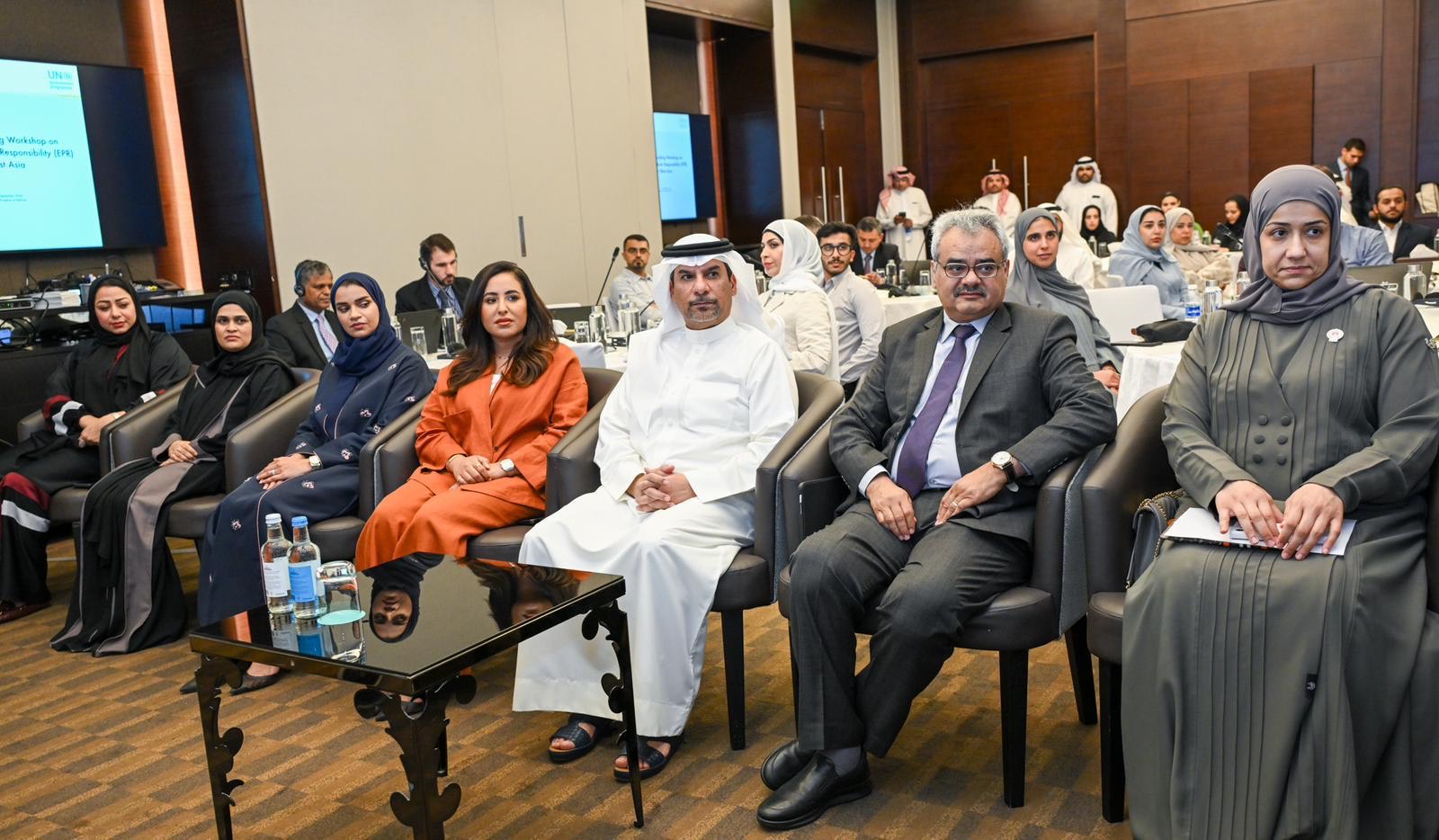
Organised by the Supreme Council for the Environment and the UNEP: Assistant Professor at the Arabian Gulf University Participates in Workshop on “EPR”
Arabian Gulf University
18 Sep, 2024
Dr. Sumaya Yusuf, Assistant Professor of Environmental Engineering at the Arabian Gulf University (AGU), played a pivotal role as a keynote speaker in a workshop organised by the Supreme Council for the Environment in collaboration with the United Nations Environment Programme (UNEP).
The workshop, held over two days, focused on building capacities for the implementation of the Extended Producer Responsibility (EPR) principle to enhance sustainable waste management through a collaborative approach among all stakeholders and to promote the concept of a circular economy in the region. Conducted in partnership with the UNEP’s Environmental Technology Centre, the workshop featured the participation of numerous experts and stakeholders dedicated to waste management across Western Asia.
In her address, Dr. Yusuf highlighted the critical opportunities and challenges associated with applying the EPR principle within the GCC countries and Western Asian states. She underscored that EPR is an essential component of the circular economy strategy and a vital tool derived from the "Polluter Pays" principle.

Furthermore, Dr. Yusuf assessed the current status of waste management in GCC countries, alongside the trends and commitments made in pursuit of the 2030 Sustainable Development Goals (SDGs), particularly those pertaining to responsible production and consumption (Goal 12). She emphasised the necessity of adopting circular economy principles and activating their mechanisms as integral elements of national waste management strategies.
She also stressed the significance of implementing a comprehensive and sustainable approach to solid waste management that prioritises waste prevention and reduction at the source, explaining that this necessitates establishing a supportive legislative, regulatory and legal framework.
The EPR principle is deemed one of the most crucial enablers of this prioritised strategy, holding manufacturers accountable for product recovery after consumption. This responsibility fosters positive outcomes for sustainable and environmentally friendly production and supply chains, such as reducing production costs, conserving non-renewable natural resources, preventing their depletion, and stimulating innovation in reuse and recycling. Moreover, this strategy contributes to economic diversification and job creation, addressing the pressing social issue of unemployment that affects many communities.

The workshop also addressed the significant challenges confronting the implementation of this policy, notably economic challenges such as rising costs and a lack of or insufficient mandatory incentives and regulations. Additional challenges were also highlighted, such as inadequate supporting infrastructure, a shortage of trained labour, low awareness levels and ineffective marketing and communication among stakeholders.
Dr. Yusuf emphasised the importance of collaboration and concerted efforts among stakeholders, advocating for the activation of cooperation agreements and the establishment of mechanisms for monitoring implementation and regularly assessing progress to ensure the achievement of objectives, underlining that stakeholders can maximise the benefits of EPR as a valuable opportunity by addressing these barriers.
